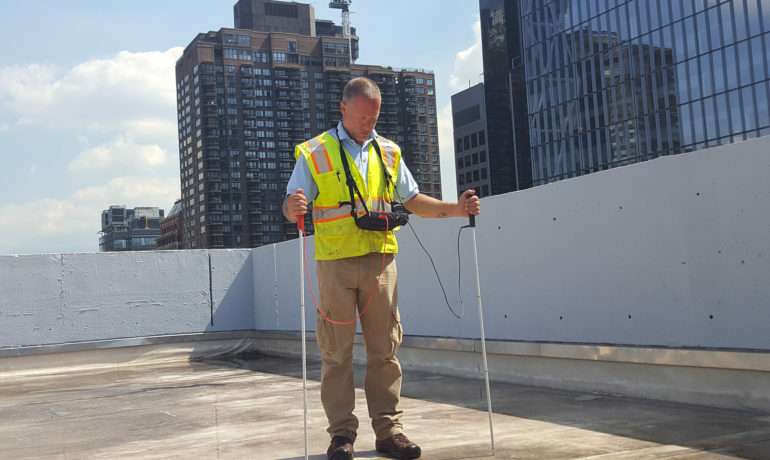Commercial roof leaks are prevalent and can cause immense damage to your building and any equipment inside. Leak detection can be done in a variety of ways, but many property owners don’t understand the differences and advantages of each. Below, we’ll discuss what low-voltage (EFVM) leak detection is, how it works, and when it may be the best solution for your building.
What Is Low Voltage Leak Detection?
Low-voltage leak detection is a non-invasive scientific method of scanning a roof to determine where breaches or leaks are located. They use low voltage electricity and the building membrane’s lack of conductivity to identify roof leaks with a great deal of precision.
How It Works
Low-voltage leak detection involves a ground connected to the metal or concrete decking, then wetting the roof and inducing a low voltage current across the wet plane. This area is created with a boundary cable surrounding the test field. When the test probes are at any breach in the roof membrane, the voltage travels through to the ground, completing the circuit and alerting the technician with an audible signal.
When It’s Necessary
Low-voltage leak detection is extremely helpful for locating leaks on large and small roofs. A technician can pass over extensive areas in a short amount of time, helping to identify general locations of breaches in your roof membrane. It’s also helpful for ongoing roof testing, as it requires minimal preparation and can turn around quick results.
When It’s Not Necessary
The electrical current used in low-voltage testing isn’t powerful enough to detect weaknesses in roofing material that haven’t yet begun to leak. As such, it’s not a helpful solution for determining where preemptive repairs would be most beneficial.
This form of leak detection is a safe, non-invasive method of testing and pinpointing your roof leaks, determining where water may be entering your structure, and minimizing repair costs. When you’re ready to have low-voltage roof testing carried out on your building, contact one of our friendly and highly-trained technicians for more information.

